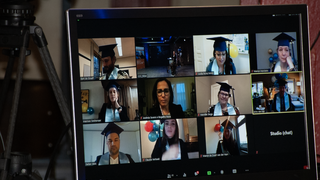“Not all communication activities in an organisation are strategic – in fact, most are not,” says Professor Ansgar Zerfass, the head lecturer in the corporate education course. Prof. Zerfass is a professor at Leipzig University in Germany and at BI Norwegian Business School. He says many large and expensive campaigns might be necessary and useful, but only operational from a management point of view. They support day-to-day work, but don’t make a big difference, as competitors act similarly.
Sustained success
The basic concept in this course is strategic communication. “This encompasses all communication that is substantial for the survival and sustained success of an organisation, a brand, a person, or a function. You must manage communication to ensure that communication is used purposefully to engage in conversations of strategic or operational significance to organisational goals.”
Prof. Zerfass continues: “This means you need to focus on the impact on value creation, not only on the success of corporate communications in the media or among stakeholders. What is needed is a business model for communications – a model that describes the rationale of how your communication department creates, delivers, and captures value for your organisation.” He adds this will be different for each organisation and it might change over time, depending on the scope, set-up and tradition of the organisation, the expectations of top management and other executives, and the ambitions of the communicators in charge.
Communication research in practice
In addition to academic knowledge, participants will learn from experiences and practical insights from business practitioners from a variety of organisations: Judith Coster (vice-president corporate communications, KLM), Julia Huhn (head of communications, public policy and responsible banking, Santander Consumer Bank), Christoph Lautenbach (owner, communication consultancy firm Lautenbach Sass), and Veronika Zimmer (senior consultant, Lautenbach Sass).
“The success of companies is based on the reputation that they have built with their stakeholders,” says Professor Joep Cornelissen, academic director of the part-time Executive MSc Corporate Communication. “For years, research is clearly pointing to the importance of companies managing their communication and engagement with stakeholders and to do so in ways that align their own purpose with the expectations and values of society.”
But how can people actually do this? It is easy enough to highlight the importance of strategic communication and to highlight a few successful case examples, says Prof. Cornelissen. “But that in itself doesn’t give you as a manager or communication professional the strategic insights and tools you need yourself to make this happen for your own company. That’s why we developed this course with Prof. Ansgar Zerfass: to close the gap and the demand for strategy tools and framework to help practicing communication managers.”
The Strategic Communication course
RSM continuously develops new courses to meet the needs of business professionals. This three-day course is designed to help communication professionals to create a suitable business model for its communication department, which helps practitioners to operate smoothly in a turbulent world, create overall value, and explain this to top management. The training can be followed on its own, or as a module in RSM’s part-time Executive MSc in Corporate Communication.
The English-taught course Strategic Communication will take place online on 20-22 September 2021.



